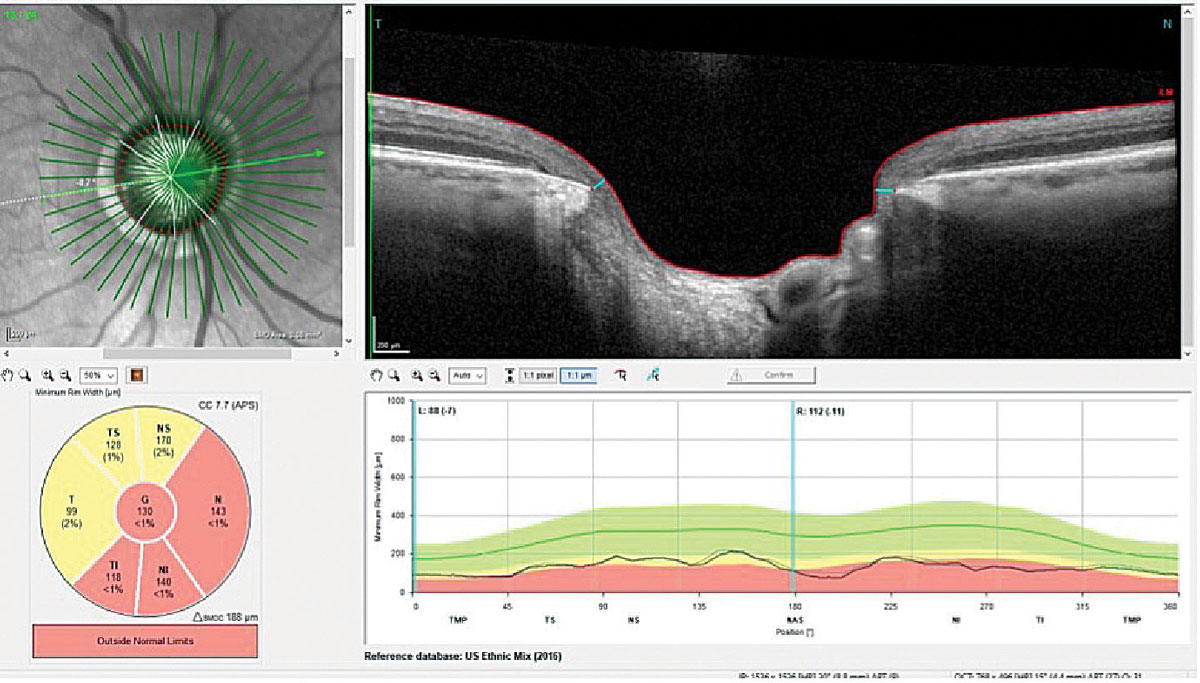 |
| In glaucoma, it’s thought that obesity-associated orbital adipose tissue may elevate episcleral venous pressure, decreasing aqueous outflow and subsequently leading to increased intraocular pressures. Photo: James Fanelli, OD. Click image to enlarge. |
Obesity is a major health concern linked to increased mortality risk. Studies show that bariatric surgery for morbid obesity effectively reduces BMI and risk factors for heart disease and metabolic syndrome. Obesity has also been connected to ocular disease states such as diabetic retinopathy and glaucoma, prompting increased attention on the potential effects of this surgery on ocular health. In a recent Eye paper, researchers found that bariatric surgery was linked to future risk reduction of several ocular disease states.
In the retrospective study, researchers identified patients with the ICD-10 code for morbid obesity and a procedural code for bariatric surgery in the TriNetX United States Collaborative Network national database. A matched control cohort of those without a bariatric surgery procedural code was also included (both groups, n=42,408).
The researchers reported that bariatric surgery was associated with a reduced future risk of diabetic retinopathy, macular edema, vitreous hemorrhage, ocular hypertension, glaucoma, use of ocular pressure lowering medications, age-related macular degeneration, cataract surgery, and low vision and blindness vs. patients who didn’t undergo the surgery. Relative risk figures were as follows:
Condition | Relative Risk Among Post-surgical Patients |
diabetic retinopathy | 0.283 |
macular edema | 0.224 |
vitreous hemorrhage | 0.459 |
ocular hypertension | 0.387 |
glaucoma | 0.360 |
use of ocular pressure-lowering drugs | 0.565 |
AMD | 0.628 |
cataract surgery | 0.524 |
low vision and blindness | 0.328 |
“This study largely supports and adds clarity to what has been reported in the literature regarding patients undergoing bariatric surgery and ocular pathology,” the researchers noted in their paper, although they also point out that it’s the first conducted across a large population and one of the first to connect the surgery with changes in future glaucoma risk.
Russell MW, Kumar M, Li A, et al. Incidence of ocular pathology following bariatric surgery for with morbid obesity across a large United States national database. Eye. April 27, 2024. [Epub ahead of print]. |


